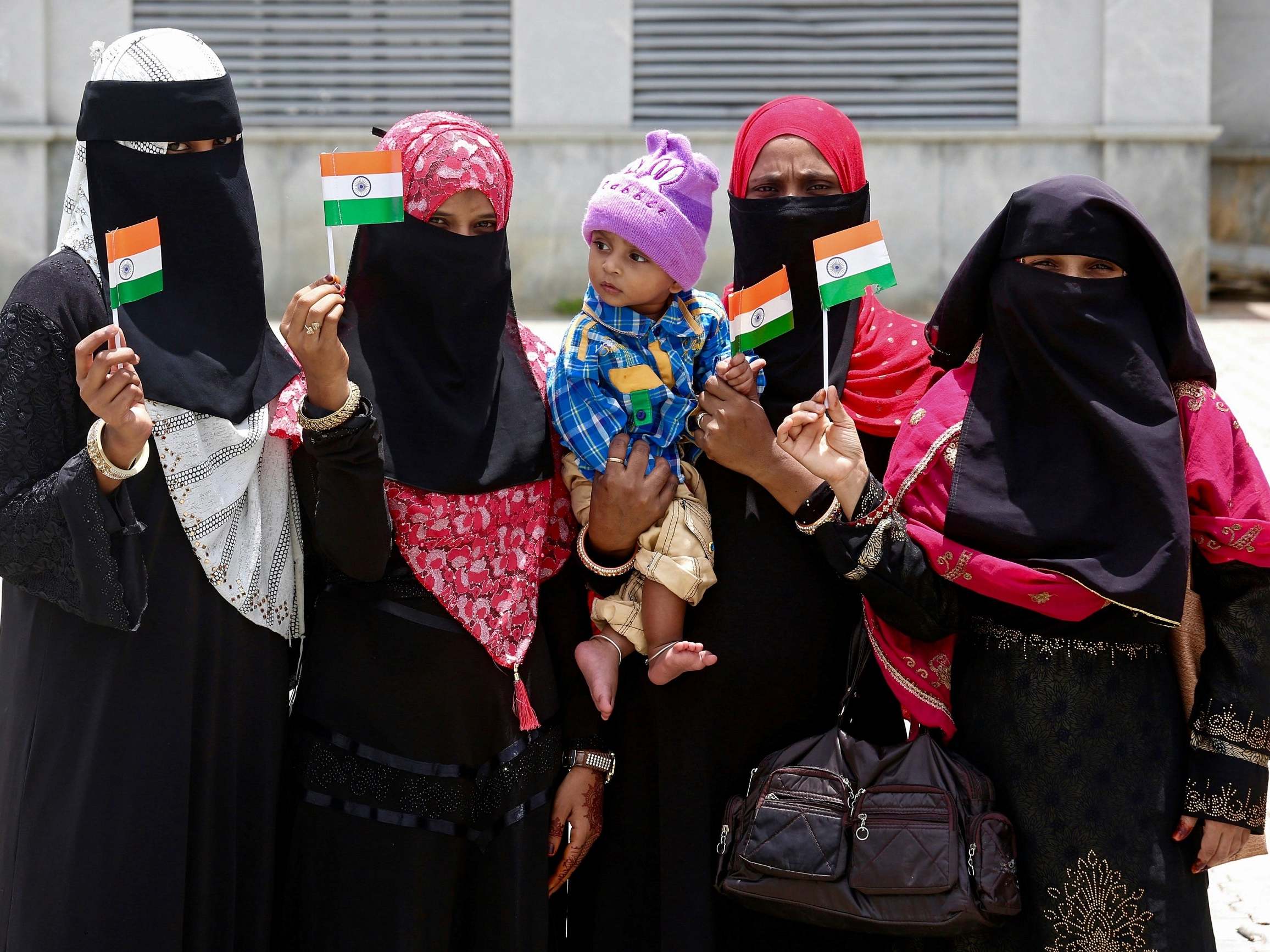Indian police arrest two over ‘Bulli Bai’ website which put Muslim women ‘on sale’
It is the second time in less than a year Muslim women have been targeted by fake auction apps

Two people have been detained by Indian police over their role in the targeting of Muslim women by “auctioning” them through an app called “Bulli Bai”, which used women’s photos without their consent.
Mumbai police said a woman was among those arrested. Her identity has not yet been disclosed by authorities.
Vishal Kumar Jha, a 21-year-old engineering student from Bengaluru city, was also detained and is currently being questioned.
Police said he was in touch with the unnamed woman. He had opened an account by the name “Khalsa supremacist,” according to the police. On Tuesday afternoon, Mr Jha was produced before Mumbai’s Bandra Court and ordered to be held in custody until 10 January.
On 1 January, hundreds of Muslim women across India — including journalists, artists, lawyers, students and those critical on social media of the country’s current political climate — found images of themselves being used on the “Bulli Bai” app, which claimed they were up for “sale”.
Several women lodged complaints following social media outrage. Several commentators across religious and political divides have condemned the app, which it claims constitutes an act of harassment against Muslim women in India.
Many women who found their photos on the app took screenshots as evidence and posted about it on social media.
Zeba Warsi, a journalist whose name was among the Muslim women who were “on sale” on the app, tweeted: “It’s infuriating that this shameful crime happened AGAIN in India. It is because the last time it went unpunished.”
She added: “It is the government’s and police’s responsibility to protect us from this attack. We shouldn’t have to demand it. We’re tired of outraging. Exhausted and angry.”
Police and politicians across the spectrum later promised action against the makers of the app.
Authorities said Mr Jha was running a Twitter handle that posted offensive content.
This is not the first time Muslim women have been harassed online.
A website and app similar to “Bulli Bai”, called “Sulli Deals”, emerged early last year and also hosted photos of prominent Indian Muslim women for “sale”.
While “Bulli Bai” was up for a day before being taken down, “Sulli Deals” had remained accessible for weeks. No one, so far, has been charged in that case.
Hana Mohsin Khan, who had found herself on “Sulli Deals”, wrote an opinion piece published by the news portal India Ahead News in which she recounted being “pulled into a spiral of negativity”.
“Clicking the app link sent me to a page that said ‘find the sulli of your day’ and the button read ‘find me a sulli.’ I clicked almost without thought. I had no idea what ‘sulli’ meant,” she said.
“I learned later that ‘sulli’ was a derogatory word for Muslim women. It was another vile word used to dehumanise Muslims that I would have liked to go through life without knowing,” she added.
Join our commenting forum
Join thought-provoking conversations, follow other Independent readers and see their replies
Comments
Bookmark popover
Removed from bookmarks